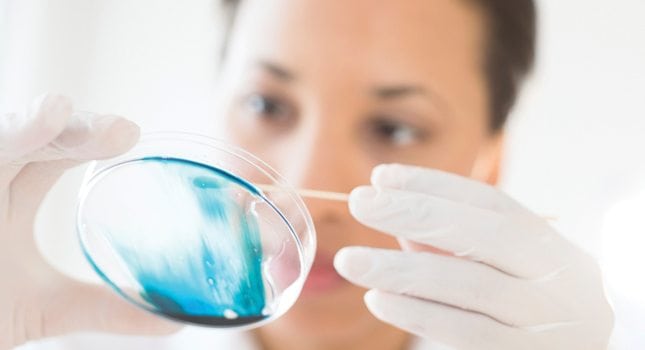
Pioneering Regenerative Medicine
American CryoStem looks to take charge of the emerging regenerative medicine industry.
By Anthony Bucci, Assistant Editor On Jun 30, 2014Aimed at repairing, replacing or regenerating organs and tissue that have either been damaged or affected by disease, regenerative medicine has become an emerging field in science and technology over the past few years. Cue American CryoStem, a FDA-registered, Mount Laurel-based company that has been centering its platform on providing consumers and institutions with standardized, clinical-grade solutions using an individual’s own adipose derived adult stem cells (body fat), for regenerative purposes.
Founded in 2008, American CryoStem designed and developed a state-of-the-art laboratory and standard operating procedures to collect, process, store and retrieve the adipose tissue, or fat. For instance, an American CryoStem physician provider would perform a mini-liposuction procedure to take fat from areas like the lower abdomen, outer thigh or upper hip. The physician would then package and send the fat to the company using its patented Cellect® tissue collection system. Next, American CryoStem would use its ATGRAFT™ product to process the received fat, which can then be cryo-preserved and used in the future as a natural filler for reconstructive and surgical procedures. The stem cells contained in the fat may be used for regenerative medicine applications or to make the patient a personalized anti-aging product containing his or her own stem cell growth factors. The end product is then sent back to the physician to use on the patient when needed.
“This process can be used in place of synthetic injectables like Juvederm® or Restylane®,” says John Arnone, chairman and CEO of American CryoStem. “People are now looking at natural, safe alternatives to those drugs, and that would be to use your own tissue as opposed to artificial fillers.”
American CryoStem’s portfolio also includes products such as proprietary ATCELL™ Adipose-Derived Stem Cells (ADSC) and patented ACSelerate™ (animal serum free), Good Manufacturing Practice grade, cell culture and differentiation mediums, in which it has recently collaborated with Rutgers University, and its NanoScript™ technology.
Arnone says that the collaboration will “help accelerate the translation of stem cell-based therapies to the market, as well as the potential commercialization of exciting new stem cell therapies capable of effectively treating human illnesses and diseases.”
Additionally, the company is currently finalizing licensing agreements for its core processes and products with laboratories around the world in order to “fully utilize” the power of its platform.
Arnone mentions that his company’s business has changed since its inception and says, “I think we have done a great job of adapting to our industry and educating the consumer,” he concludes. “We envision American CryoStem as a biotechnology pioneer that will ultimately make regenerative and personalized medicine a reality for all, not only in the United States, but around the world.”
Related Articles:





